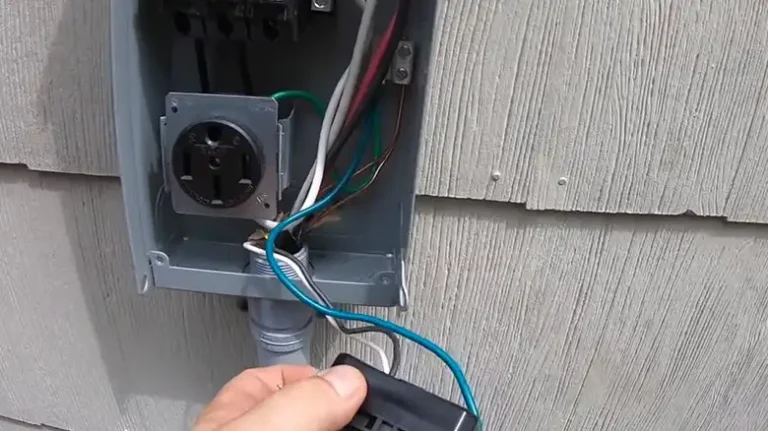Upgrading to an Energy-Efficient RV Refrigerator (What You Should Need to Know)
Having an efficiently operating refrigerator represents one of the most crucial elements for comfortably sustaining any RV lifestyle long term. As one of the biggest daily energy drains onboard most recreational vehicles, an aging inefficient fridge can rapidly sap precious battery reserves during dry camping while simultaneously skyrocketing propane consumption using absorption cooling at RV resort hookups.
Upgrading to a new energy-efficient refrigerator model allows substantial cost savings over the next years of road-tripping while also providing improved temperature regulation to better protect precious food stores from spoilage. Let’s explore the signs indicating the ideal timing to upgrade your RV refrigerator as well as what to look for when selecting the next perfect unit for your particular travel needs.

Evaluating the Need to Upgrade Your RV Refrigerator
Before deciding definitively whether to invest considerable time and money into replacing your current RV refrigerator, first, thoroughly evaluate your existing model across several key performance factors –

Age and Reliability – Refrigerator components wear down over years of vibration enduring many miles over uneven terrain. Most RV refrigerators face reliability issues starting around the 10-year ownership mark as gaskets fatigue, circuit boards fail, and components like thermostats lose calibration preventing reliable temperature control. If your unit exceeds a decade old and seems to need frequent repairs, upgrading likely makes prudent economic sense.
Energy Efficiency – Inspect your refrigerator’s operator manual to find the estimated daily power consumption rates for both propane gas while running in absorption cooling mode and electricity requirements if utilizing a compressor-based chilling system. Especially with older models, you’ll likely find excessive energy drain well above newer units. This not only hampers battery charge but also limits comfortable dry camping time while off the grid.
Interior Capacity – Carefully measure the total exterior dimensions of your existing RV refrigerator plus tally its overall interior capacity across fresh food, frozen, and rapid cooling compartments. When shopping replacement units, confirm upgraded models equipped with similar cubic footage capacities within the same footprint and able to reuse existing cabinet cutouts. Larger families upgrading RV models can benefit from new fridges that pack more chilled storage volume into virtually the same exterior footprint as previous options.
Selecting a New High-Efficiency RV Refrigerator
When shopping for an upgraded RV refrigerator replacement, first decide between the two main cooling technologies – absorption refrigeration running on propane heat versus compressor-powered models using electricity. Several universal efficiency factors also come into play regardless of the operational design type selected –
Cooling Systems
For RVers who dry camp extensively off-grid, propane-fired absorption fridge models powered by RV batteries offer continuous chilling completely independent of shore power electrical availability. However, for those staying mostly at full hookup RV parks, household-style compressor refrigerators maximize chilling efficiency using a fraction of the electricity conventional units demand. Installing both and using the ideal system for each trip saves upgrading later.
Variable Speed Compressors
These specially engineered high-efficiency compressors optimize electrical current consumption to precisely match real-time interior cooling demands. By adjusting RPMs based on sensor feedback rather than maintaining full speed 100% of the time, inverter compressors prevent energy waste from excessive cycling beyond actual food storage chilling needs.
Insulation
Multiple door seals supplemented by thick polyurethane foam-filled cabinet walls nearly eliminate external ambient heat transfer into the enclosed food storage compartments. Preventing the introduction of new warmth allows refrigerators to maintain stable cool conditions using minimal energy once up to temperature.
Automatic Defrost Capability
Self-cycling defrost mechanisms that periodically pulse warm melt water over evaporator coils to clear freezer compartment frost buildup prevents accumulating ice mass from interfering with operational efficiency. Allowing any fridge or freezer to ice heavily internally enables ice to act as unwanted insulation that inhibits ideal heat transfer and risks temperature fluctuations.
Energy Certified Cooling Tier
When comparing refrigerators, look for models officially certified as meeting modern “3-Tier” DOE energy efficiency ratings for minimizing lifetime propane and electrical consumption. 3-Tier verification indicates an RV refrigerator model matches or exceeds stringent efficiency standards.
How Much Does It Cost to Upgrade an RV Refrigerator?
Committing to fully upgrade your RV refrigerator represents a major investment, but one that returns savings year after year through substantially reduced energy costs and improved food safety and convenience functionality.
Equipment Purchase Price – Expect to spend $1,500 on the affordable end up to $4,000+ when selecting premium brands and high-end models optimized specifically for RV use. Units offering the most advanced efficiency components, durable construction, and largest storage capacities understandably fall at the top of this price range.
Installation Expenses – Unless you happen to possess substantial electrical, plumbing, and finish carpentry expertise, hiring a certified RV service technician proves advisable to safely remove and dispose of the old ineffective refrigerator as well as properly install and integrate the upgraded replacement unit. Paying pros expect installation costs to run $500 – $1,500 depending on challenges in finding adequate wiring or ventilation paths. Handling the swap yourself saves substantially over retail shop rates but complicates warranty claims if operational issues surface down the road.
Energy Savings – Depending on the age and working condition of your existing refrigerator, owners switching to a new upgraded energy-efficient fridge save anywhere from 30-60% (and sometimes more) from annual energy costs. These compound to thousands in savings over the 10-20-year operational lifespans of quality RV refrigerator models.
Incentives & Rebates – Some energy providers offer seasonal or limited-time rebates from $100 up to $750+ as incentives when owners retire still functional refrigerators over 10 years old. Permanently removing units consuming over X kilowatts yearly helps regional electric companies incrementally reduce peak grid loads. But don’t discard the old equipment before checking utility guidelines to qualify for reimbursements and environmental disposal assistance of hazardous materials inside inefficient appliances.
Should You Upgrade to a Residential Fridge for Your RV?
A small but growing subset of RV owners choose to install full-sized residential refrigerators inside their RV kitchen spaces instead of traditional RV-specific refrigeration units. These household fridge models certainly win praise for unmatched interior cubic foot storage capacity compared to typical compressed RV options. And their common availability makes finding replacements or service parts convenient and budget-friendly. However, integrating outsized residential refrigerators inside a confined RV kitchen requires evaluating a give-and-take balance of enhanced chilling performance against lifestyle disruptions their challenging integration introduces.
Potential Advantages
a) Unrivaled chilled storage capacity for fully stocking lengthy trips
b) Leading household appliance efficiency ratings save energy year after year
c) Usually costs noticeably less money to purchase residential units upfront over comparably sized RV models
Likely Disadvantages
a) Excess start-up weight often exceeds recommendations for many older RVs once fully loaded with food stores
b) Residential units not engineered to handle routine road vibration or steep-angle tilting
c) Require heavy cabinet modification and custom supports to secure during transit then re-level to enable proper door closure and cooling performance
Unless you require exceptional food chilling volume because your travels keep you parked in one basecamp destination for weeks at a time, committing to a major residential fridge upgrade only makes sense for a slim minority of RVing families.
Final Thought
Upgrading to a properly sized, energy-efficient RV refrigerator from a leading manufacturer brings practical benefits. Owners can reduce operational costs by 30-60%, thanks to advanced technology stabilizing temperatures and maximizing grocery budgets. Retrofitting modern refrigerators into existing RV cabinets adds storage without remodeling, and premium equipment ensures durability and reliability for years of comfortable travel.
Questions & Answers
How long do RV refrigerators typically last?
With proper maintenance, both absorption and compressor-based RV refrigerators often provide reliable service for 10-15 years before efficiency begins declining. More affordable units usually fail toward the lower end of that range. Top-tier brands advertise lifespans exceeding 20 years for their high-end models.
What are the best RV refrigerator brands?
Dometic and Norcold dominate the RV refrigerator market in North America because of their product reliability and extensive authorized service network. For the newest tech embracing eco-friendly compressor efficiency, Vitrifrigo and Indel-Webasto rank as emerging leaders.
Should I hire an RV technician to install a replacement refrigerator?
Unless you possess substantial electrical, plumbing, and carpentry skills, you likely want to hire a certified RV service company to tackle a refrigerator swap. There are many nuanced steps, like safely purging old propane lines before introducing refrigerant-grade gases to avoid deadly explosions.







